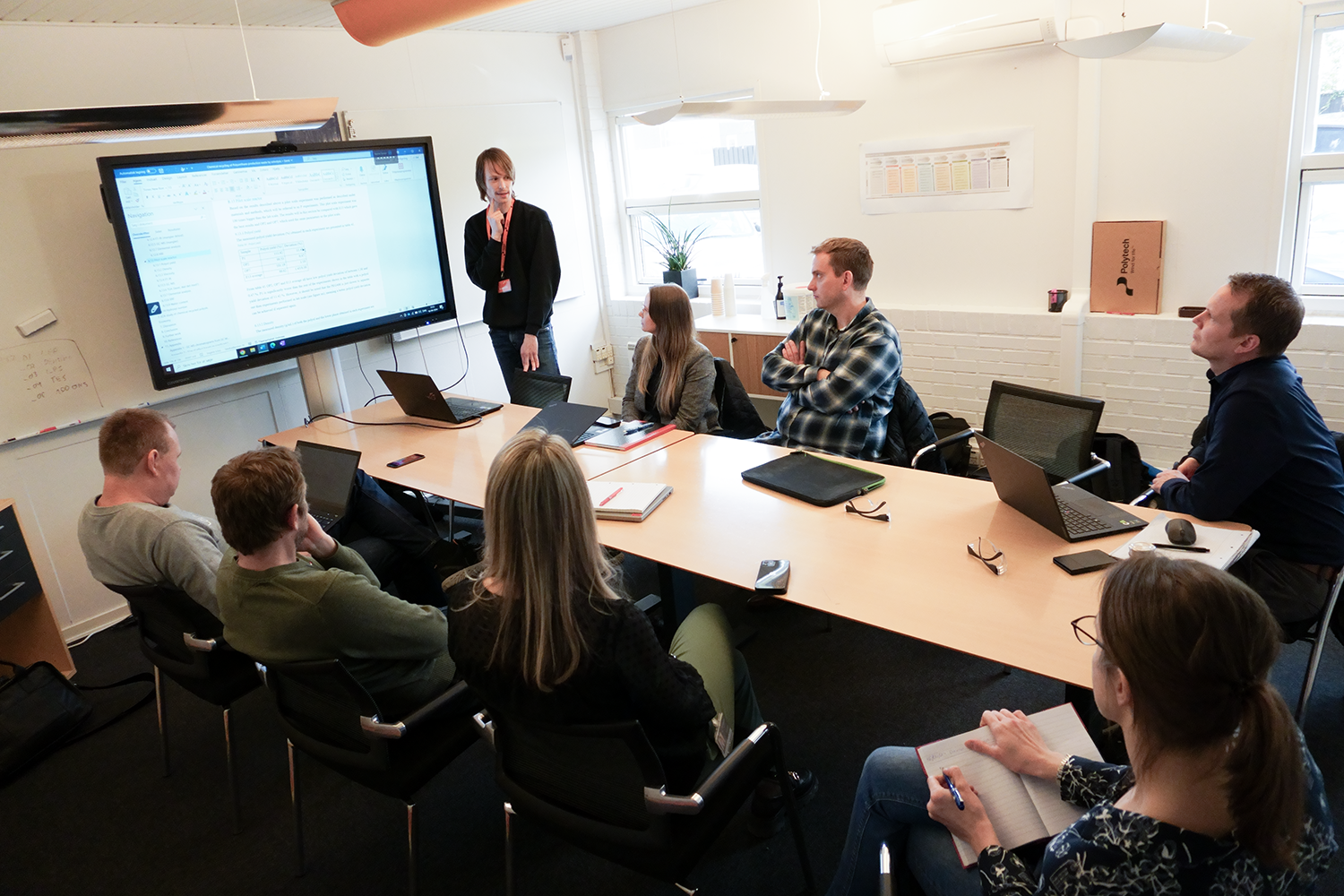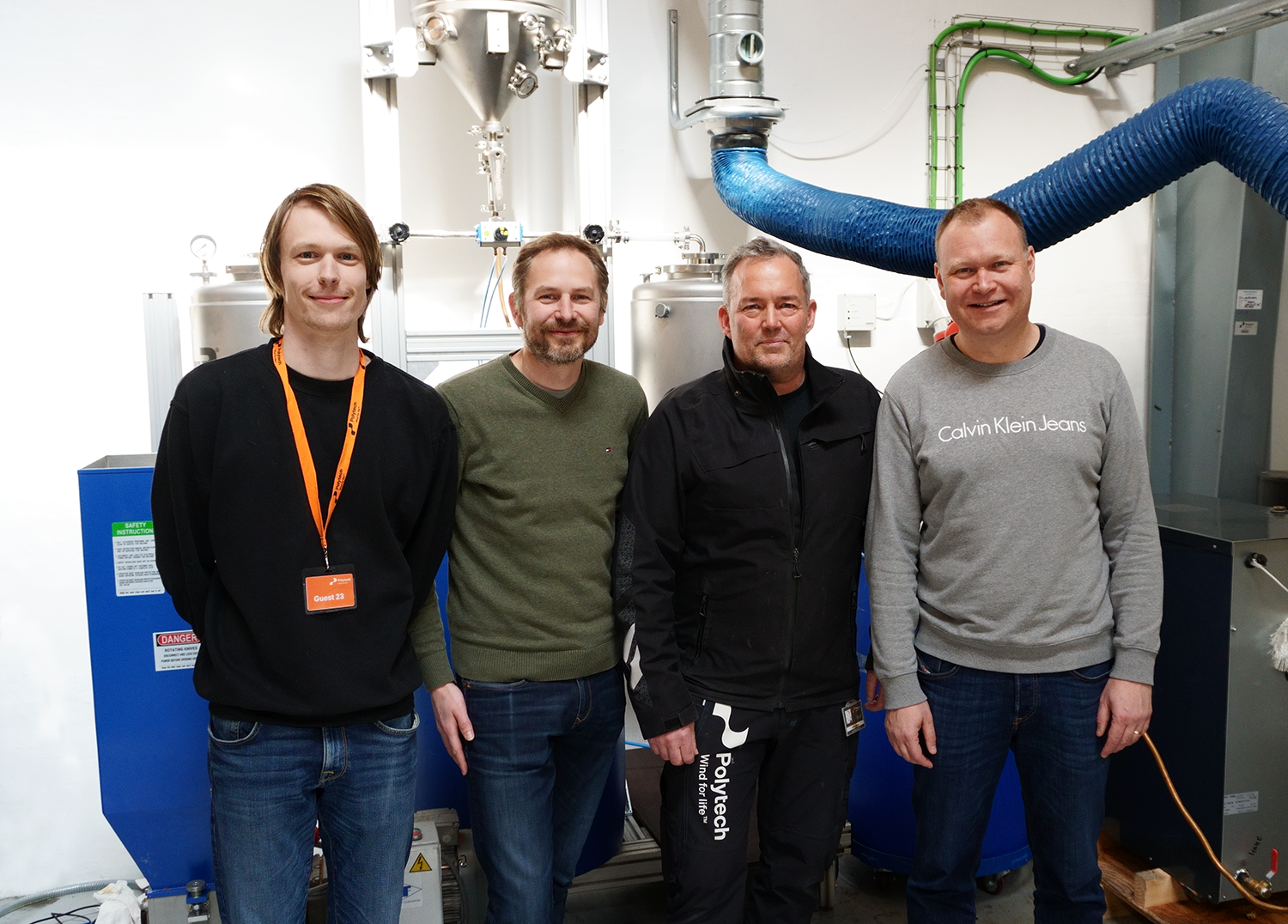Building on the results of our previous project that was rewarded as one of the Børsen Sustainability Cases in 2023, we partnered with Aalborg University Esbjerg to expand on the chemical recycling of polyurethane (PUR) waste. The project specifically focused on identifying the most optimal conditions to recycle polyol using solvolysis and optimizing the quality of the resulting polyol.
Why is this project important?
At Polytech, we want to lower our solutions’ environmental impact – and support the global sustainability agenda across the entire value chain. As such, we are on the way to developing a technology for recycling polyol and incorporating the recycled materials in new polyurethane (PUR) products at our manufacturing facilities.

We use PUR to produce e.g., protective interfaces (for wind turbine transport and storage equipment), blade add-ons, or components in our lightning protection systems. But PUR is also extensively used in the wind and other industries. And this means that new and waste PUR products are widely circulating the global market.
The purpose of the project
- Define how different factors, such as temperature, time, and ratio between solvents and catalysts, affect the polyol yield (i.e., the polyol that comes out at the end of the reaction)
- Understand the quality of the yield – and whether and how it could be incorporated in new PUR products
- Scale up the lab experiments to pilot scale (going from grams to kilograms)
- Calculate the CO2 impact of the process and yield
Promising results
- We now have strong evidence showing how temperature and time are influencing polyol yield. This is key to optimize the recycling process and achieve the highest yield possible.
- The chemical analysis, density, and viscosity of the yield showed that these end products have a quality that can be readily incorporated into new PUR products with similar properties. This validates the viability of the chemical recycling.
- The project also successfully established the recycling process at pilot scale and validated the lab results. This is a major step towards a production scale setup.
- Preliminary results of the CO2 calculations also look promising. Stay tuned for the results!
Strengthening collaboration between industry and public sector
We are proud to be collaborating with the Department of Chemistry and Bioscience at Aalborg University Esbjerg on this project. The project is carried out by one of their Master Students, Martin Sonne under the supervision of Associate Professor Morten Enggrob Simonsen. Polytech’s Principal Engineer Michael Drachmann Haag has been the external advisor to the project, providing engineering and industrial advice and guidance, in addition to access to materials and Polytech facilities.

Such a collaboration is crucial to bridge the gap between industry and educational institutions. It can help future generations to gain even more applicable and relevant knowledge. For us at Polytech it is also important to inspire engineers in choosing a career where they can contribute to the global sustainability agenda.
What’s next?
We will further optimize the solvolysis process, specifically focusing on how we can reuse the solvents multiple times. This would further lower the CO2 emissions from running the solvolysis process.
Understanding how we can improve the utilization of the solvents will be a significant contribution to the commercialization of the recycling technology.
We will again turn to Aalborg University Esbjerg to refine the process and find solutions together in the exciting workspace between academia and industry.
|
Factbox Polyol: a chemical compound that is one of the two main components in polyurethanes. Polyurethane: chemical compound made from polyols and isocyanates. PUR is a resilient, durable, and flexible material that is widely used in a range of products across various industries. Solvolysis: a substitution chemical reaction in which a solvent is used to dissolve a molecule to form a new product. |